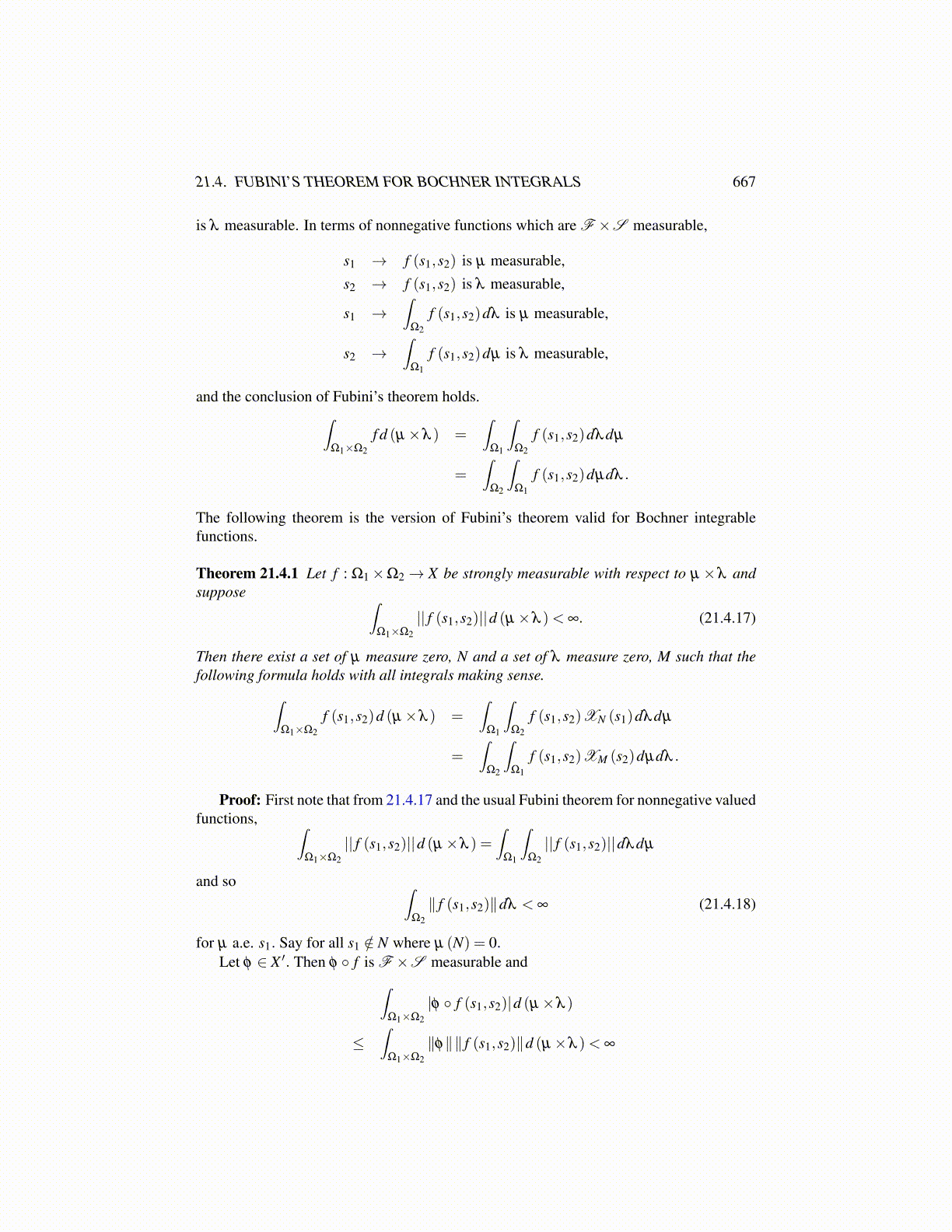
21.4. FUBINI’S THEOREM FOR BOCHNER INTEGRALS 667
is λ measurable. In terms of nonnegative functions which are F ×S measurable,
s1 → f (s1,s2) is µ measurable,s2 → f (s1,s2) is λ measurable,
s1 →∫
Ω2
f (s1,s2)dλ is µ measurable,
s2 →∫
Ω1
f (s1,s2)dµ is λ measurable,
and the conclusion of Fubini’s theorem holds.∫Ω1×Ω2
f d (µ×λ ) =∫
Ω1
∫Ω2
f (s1,s2)dλdµ
=∫
Ω2
∫Ω1
f (s1,s2)dµdλ .
The following theorem is the version of Fubini’s theorem valid for Bochner integrablefunctions.
Theorem 21.4.1 Let f : Ω1×Ω2→ X be strongly measurable with respect to µ ×λ andsuppose ∫
Ω1×Ω2
|| f (s1,s2)||d (µ×λ )< ∞. (21.4.17)
Then there exist a set of µ measure zero, N and a set of λ measure zero, M such that thefollowing formula holds with all integrals making sense.∫
Ω1×Ω2
f (s1,s2)d (µ×λ ) =∫
Ω1
∫Ω2
f (s1,s2)XN (s1)dλdµ
=∫
Ω2
∫Ω1
f (s1,s2)XM (s2)dµdλ .
Proof: First note that from 21.4.17 and the usual Fubini theorem for nonnegative valuedfunctions, ∫
Ω1×Ω2
|| f (s1,s2)||d (µ×λ ) =∫
Ω1
∫Ω2
|| f (s1,s2)||dλdµ
and so ∫Ω2
∥ f (s1,s2)∥dλ < ∞ (21.4.18)
for µ a.e. s1. Say for all s1 /∈ N where µ (N) = 0.Let φ ∈ X ′. Then φ ◦ f is F ×S measurable and∫
Ω1×Ω2
|φ ◦ f (s1,s2)|d (µ×λ )
≤∫
Ω1×Ω2
∥φ∥∥ f (s1,s2)∥d (µ×λ )< ∞